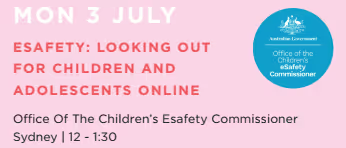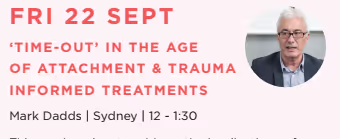
We love learning at Quirky Kid and are always working to create a learning culture within our team. Our “Lunch & Learn” sessions are one of the many ways in which we try to develop new skills. The sessions are fun, practical, and informative opportunities to learn from industry-leading experts and expand our knowledge of emerging topics around current child development and family issues.
Lunch and Learn sessions are held regularly at our clinics in Sydney and Wollongong and are open to anyone with interest in the topic to attend. We recognise that attendance is not always possible, and have therefore included (below) a summary of the background of the guest presenter and of the topics presented to us in each of these sessions to-date, for those who are interested or would like a quick review.
Register your interest for the upcoming 2018 professional workshops at our workshop pages.

Dianne Starkey has been working as a psychologist for the past 41 years specialising in the treatment of children, adolescents and adults. Previous workshops that Dianne has run include trauma treatment, attachment theory and the treatment of attachment disorder, and court assessments and reports.
Dianne shared her wealth of knowledge on:
- Identifying and assessing risks as psychologists
- Community Services Mandatory Reporters Guide and safeguarding children
- Rights and legal requirements of a therapist, as well as appropriate behaviour and emotion regulation of a therapist in family court
- Preparing and presenting a therapy report to the court
- “Do’s” and “don’t do’s” when preparing or presenting therapy reports

Lesley Harrison represented The Office of Children's eSafety Commissioner for this Lunch & Learn session. Her presentation provided a great insight into the extent that young people are accessing material online and using social media.
With social media and access to technology becoming more available, we gained a great deal from this Lunch & Learn session, covering :
- Developmental stages that children go through and how these stages are affected by screen time
- Technology-Facilitated Abuse (TFA), which is an issue in the online world for young people and reporting TFA
- Most common types of online TFA are: name-calling, threats, cyberstalking, social humiliation, sexual harassment, offensive language, sharing without consent, or repeated requests
- Gaming and the potential for gaming to become an addiction. Strategies were suggested for parents to protect their children from over-using or even becoming addicted to computer/console gaming

Dr Rebecca Sng is a Clinical Psychologist and Clinical Family Therapist. Rebecca has a great deal of knowledge and lived experience in the area of working within Narrative Therapy.
Rebecca covered the foundations of Narrative Therapy such as:
- Focusing on the concept of storytelling such as re-storying or re-authoring (rewriting or changing one’s view of a certain story
- Skills used in this approach which include retelling a dominant story as an alternate story, using an outsider as a witness and Externalisation
- Narrative therapy acknowledges 'Migration of Identity' where an individual shows a public acknowledgement of a preferred identity

Professor Stuart Johnson is a highly regarded researcher and teacher at the University of Wollongong. He is passionate about non-drug treatment alternatives for children with AD/HD.
Stuart’s Lunch & Learn session focused on:
- A tool that Stuart and his team recently created to treat the core problems in ADHD. The device (which is a bluetooth EEG recorder and computer generated games) aims to manage behavioural inhibitions and improve performance on tasks due to being under aroused
- The most significant area to focus on when treating children with ADHD is working memory and cognitive training
- Children with ADHD are “under-aroused”, that is, they seek external stimuli to self-stimulate, therefore it is important to train them to maintain focus and be able to meditate to feel calm.

With almost 20 years experience in clinical psychology, Louise Shepherd has developed a passion for Acceptance & Commitment Therapy (ACT) and has grown as one of the leaders in this field within Australia.
This flexible parenting session:
- Covered key skills to educate and equip families in flexible parenting with ACT
- Explored how ACT can help parents to ride the emotional rollercoaster whilst staying true to their heartfelt desires and values for raising healthy and well-adjusted kids.
- Addressed key concepts and exercises that might help a therapist working with parents.

Stephanie Meades is passionate about creating positive change in people's lives through empowerment and education of positive lifestyle change. As a certified GAPS (Gut and Psychological Syndrome) practitioner and passionate advocate, Steph presented on the following:
- How behaviour, mental health and gut health can be tied together
- Tips for reducing damage to gut health such as avoiding processed foods and chlorinated water, feed your body with nourishing foods and avoiding sugar
- Provided empirical evidence for probiotic supplementation demonstrating positive improvements in reducing anxiety-like behaviours, reducing depression-like behaviours, improving learning and memory, improving response to emotional stimuli – emotional processing and reducing self-reported feelings of sadness and aggressive thoughts.

Mark is from a behavioural perspective background and currently works at the Child Behaviour Research Clinic of the University of Sydney. Marks Lunch & Learn session discussed:
- How “attachment parenting” is becoming a buzzword in Australia and how the people associated with attachment are causing doubt and suspicion in the public for those who follow the behavioural research
- How some of the attachment articles out there claiming behavioural practitioners are causing trauma and harm with 'time-out' procedures
- Maintaining the behavioural integrity of an intervention, and also to include 'attachment' type concerns
Register for the upcoming workshops
href="https://childpsychologist.com.au/workshops/">Register Today
.png)



.webp)



